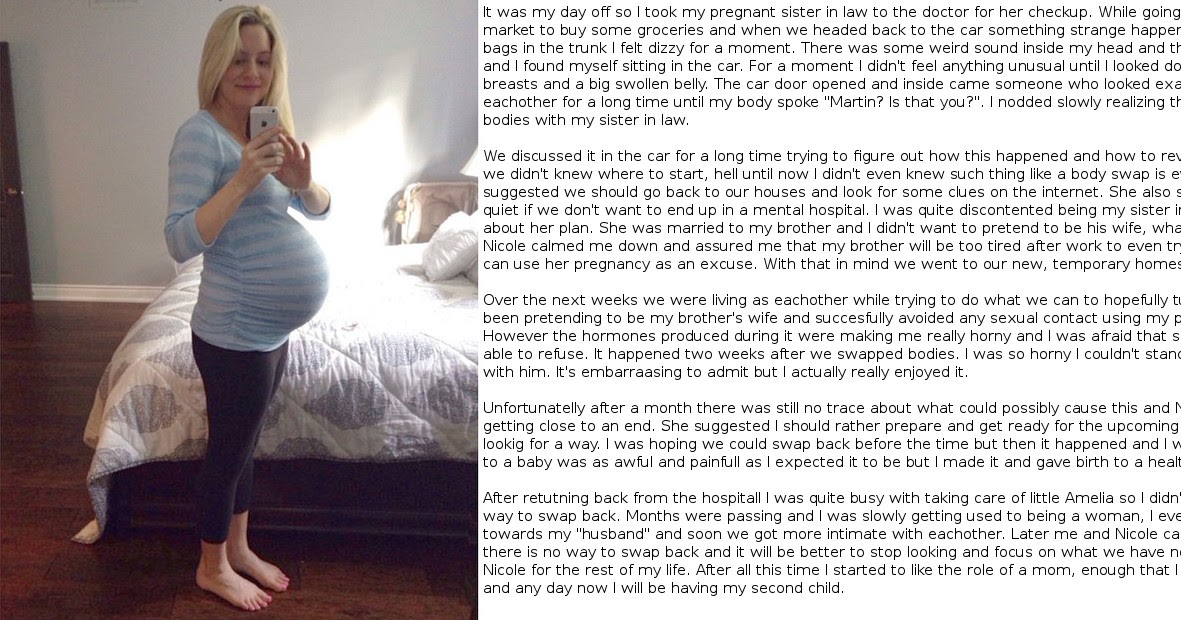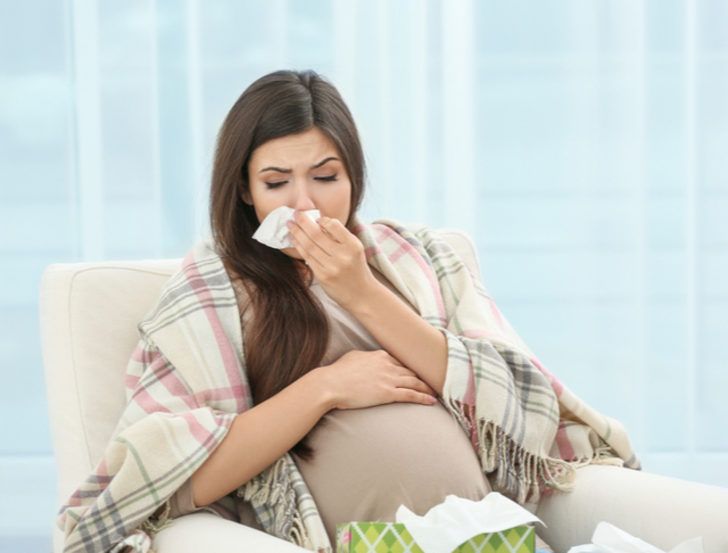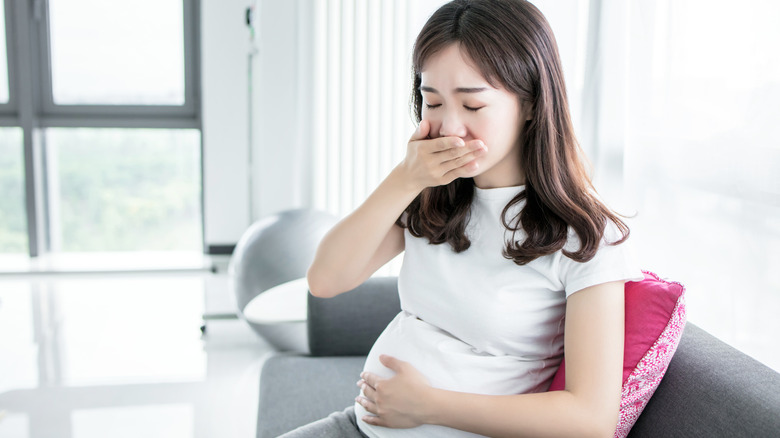Getting over a cold while pregnant
Treating a Cold or Flu When Pregnant
When you become pregnant, everything that happens to you can affect not just your body but the fetus, too. This can make dealing with being sick more complicated. Before pregnancy, if you got a cold or became sick with the flu, you may have taken an over-the-counter (OTC) decongestant. Now that you’re pregnant, you might wonder whether it’s safe. Although medications can relieve your symptoms, some may harm a developing fetus. But treating a cold or flu during pregnancy doesn’t have to be a stressful experience, and you can take many medications while pregnant.
Medications
According to most OB-GYNs, it’s best to avoid all medications in the first
12 weeks of pregnancy. That’s a critical time for the development of a fetus’s vital organs. It’s a good idea to speak with your doctor if you’re pregnant or trying to get pregnant and currently taking medication or considering taking medication. Several medications are considered safe after 12 weeks of pregnancy. These include:
- topical menthol
- nasal strips
- cough drops or lozenges
- acetaminophen (Tylenol) for aches, pains, and fevers
- cough suppressant at night
- expectorant during the day
- calcium-carbonate (Mylanta, Tums) or similar medications for heartburn, nausea, or upset stomach
- plain cough syrup
- dextromethorphan (Robitussin) and dextromethorphan-guaifenesin (Robitussin DM) cough syrups
Avoid all-in-one medications that combine ingredients to tackle many symptoms. Instead, choose single medications for the symptoms you’re dealing with. You should also avoid the following medications while pregnant unless your doctor recommends you take them. They increase the risk for problems:
- aspirin (Bayer)
- ibuprofen (Advil, Motrin)
- naproxen (Aleve, Naprosyn)
- codeine
- Bactrim, an antibiotic
Home remedies for cold and flu during pregnancy
When you get sick while pregnant, your first steps should be to:
- Get plenty of rest.

- Drink a lot of fluids.
- Gargle with warm salt water if you have a sore throat or cough.
If your symptoms worsen, you might want to try:
- saline nasal drops and sprays to loosen nasal mucus and soothe inflamed nasal tissue
- breathing warm, humid air to help ease congestion; a facial steamer, hot-mist vaporizer, or even a hot shower can work
- chicken soup to help relieve inflammation and soothe congestion
- adding honey or lemon to a warm cup of decaffeinated tea to relieve a sore throat
- using hot and cold packs to alleviate sinus pain
Is it a cold or the flu?
The common cold and the flu share many symptoms, such as a cough and runny nose. However, a few differences can help you tell them apart. If your symptoms are generally mild, then you likely have a cold. Also, chills and fatigue are more likely with the flu.
Things you can do to reduce your risk
When you’re pregnant, your body’s immune system becomes weaker to prevent your body from rejecting the fetus. But, it also leaves you more vulnerable to viral and bacterial infections. Pregnant people are also
But, it also leaves you more vulnerable to viral and bacterial infections. Pregnant people are also
than nonpregnant folks their age to have flu complications. These complications may include pneumonia, bronchitis, or sinus infections. Getting a flu vaccination can reduce your risk of infection and complications. Other things you can do to reduce your risk of getting sick include:
- washing your hands often
- getting enough sleep
- eating a healthy diet
- avoiding close contact with sick family or friends
- exercising regularly
- reducing stress
When should I call my doctor?
Although most colds don’t cause problems for a fetus, you should take the flu more seriously. Flu complications increase the risk of premature delivery and birth defects. Get immediate medical help if you experience the following symptoms:
- dizziness
- difficulty breathing
- chest pain or pressure
- vaginal bleeding
- confusion
- severe vomiting
- high fever that isn’t reduced by acetaminophen
- decreased fetal movement
The
CDC recommends treating pregnant people with flu-like symptoms immediately with antiviral medications. Call your doctor’s office if you have any questions or you’re not sure your symptoms are worrisome.
Call your doctor’s office if you have any questions or you’re not sure your symptoms are worrisome.
Takeaway
Getting sick while pregnant can be particularly unpleasant, and you might wonder whether it’s safe to take OTC medications to ease your symptoms. Generally, doctors recommend avoiding medications in the first 12 weeks of pregnancy. If you’re currently taking medication for a condition or it’s after 12 weeks, and you want to take something to reduce cold or flu symptoms, it’s a good idea to talk with a doctor about what’s safe and what you should avoid.
Treating a Cold or Flu When Pregnant
When you become pregnant, everything that happens to you can affect not just your body but the fetus, too. This can make dealing with being sick more complicated. Before pregnancy, if you got a cold or became sick with the flu, you may have taken an over-the-counter (OTC) decongestant. Now that you’re pregnant, you might wonder whether it’s safe. Although medications can relieve your symptoms, some may harm a developing fetus. But treating a cold or flu during pregnancy doesn’t have to be a stressful experience, and you can take many medications while pregnant.
Although medications can relieve your symptoms, some may harm a developing fetus. But treating a cold or flu during pregnancy doesn’t have to be a stressful experience, and you can take many medications while pregnant.
Medications
According to most OB-GYNs, it’s best to avoid all medications in the first
12 weeksof pregnancy. That’s a critical time for the development of a fetus’s vital organs. It’s a good idea to speak with your doctor if you’re pregnant or trying to get pregnant and currently taking medication or considering taking medication. Several medications are considered safe after 12 weeks of pregnancy. These include:
- topical menthol
- nasal strips
- cough drops or lozenges
- acetaminophen (Tylenol) for aches, pains, and fevers
- cough suppressant at night
- expectorant during the day
- calcium-carbonate (Mylanta, Tums) or similar medications for heartburn, nausea, or upset stomach
- plain cough syrup
- dextromethorphan (Robitussin) and dextromethorphan-guaifenesin (Robitussin DM) cough syrups
Avoid all-in-one medications that combine ingredients to tackle many symptoms. Instead, choose single medications for the symptoms you’re dealing with. You should also avoid the following medications while pregnant unless your doctor recommends you take them. They increase the risk for problems:
Instead, choose single medications for the symptoms you’re dealing with. You should also avoid the following medications while pregnant unless your doctor recommends you take them. They increase the risk for problems:
- aspirin (Bayer)
- ibuprofen (Advil, Motrin)
- naproxen (Aleve, Naprosyn)
- codeine
- Bactrim, an antibiotic
Home remedies for cold and flu during pregnancy
When you get sick while pregnant, your first steps should be to:
- Get plenty of rest.
- Drink a lot of fluids.
- Gargle with warm salt water if you have a sore throat or cough.
If your symptoms worsen, you might want to try:
- saline nasal drops and sprays to loosen nasal mucus and soothe inflamed nasal tissue
- breathing warm, humid air to help ease congestion; a facial steamer, hot-mist vaporizer, or even a hot shower can work
- chicken soup to help relieve inflammation and soothe congestion
- adding honey or lemon to a warm cup of decaffeinated tea to relieve a sore throat
- using hot and cold packs to alleviate sinus pain
Is it a cold or the flu?
The common cold and the flu share many symptoms, such as a cough and runny nose. However, a few differences can help you tell them apart. If your symptoms are generally mild, then you likely have a cold. Also, chills and fatigue are more likely with the flu.
However, a few differences can help you tell them apart. If your symptoms are generally mild, then you likely have a cold. Also, chills and fatigue are more likely with the flu.
Things you can do to reduce your risk
When you’re pregnant, your body’s immune system becomes weaker to prevent your body from rejecting the fetus. But, it also leaves you more vulnerable to viral and bacterial infections. Pregnant people are also
more likelythan nonpregnant folks their age to have flu complications. These complications may include pneumonia, bronchitis, or sinus infections. Getting a flu vaccination can reduce your risk of infection and complications. Other things you can do to reduce your risk of getting sick include:
- washing your hands often
- getting enough sleep
- eating a healthy diet
- avoiding close contact with sick family or friends
- exercising regularly
- reducing stress
When should I call my doctor?
Although most colds don’t cause problems for a fetus, you should take the flu more seriously. Flu complications increase the risk of premature delivery and birth defects. Get immediate medical help if you experience the following symptoms:
Flu complications increase the risk of premature delivery and birth defects. Get immediate medical help if you experience the following symptoms:
- dizziness
- difficulty breathing
- chest pain or pressure
- vaginal bleeding
- confusion
- severe vomiting
- high fever that isn’t reduced by acetaminophen
- decreased fetal movement
The
CDCrecommends treating pregnant people with flu-like symptoms immediately with antiviral medications. Call your doctor’s office if you have any questions or you’re not sure your symptoms are worrisome.
Takeaway
Getting sick while pregnant can be particularly unpleasant, and you might wonder whether it’s safe to take OTC medications to ease your symptoms. Generally, doctors recommend avoiding medications in the first 12 weeks of pregnancy. If you’re currently taking medication for a condition or it’s after 12 weeks, and you want to take something to reduce cold or flu symptoms, it’s a good idea to talk with a doctor about what’s safe and what you should avoid.
Colds during pregnancy: how to treat?
Any cold or respiratory disease in early pregnancy, during the primary formation of the fetus, can lead to unpredictable consequences and complications. The matter is complicated by the fact that most medications are absolutely contraindicated for use during gestation.
In this regard, the treatment and prevention of colds in pregnant women is an important issue, which should be approached especially responsibly! The main thesis is: be careful with medicines and apply mild preventive measures based on alternative medicine methods to avoid respiratory diseases and flu.
"One for two - immunity"
This is a very fragile system, it is not necessary to interfere in its work, but it is necessary to support and strengthen it. Pregnancy belongs to the category of special, albeit temporary, conditions during which a woman needs additional protection.
This issue will help simple recommendations that are available to everyone:
• During the period of frequent weather changes, it is necessary to dress warmer, paying special attention to shoes.
• During an epidemic, it is better for a pregnant woman to refrain from being in crowded places - transport, metro, shops and hospitals. If there is an urgent need, to prevent possible infection, a protective respiratory mask should be worn before leaving the house.
• Be especially careful about hygiene after visiting the street and public places. Upon returning home, the first thing to do is wash your hands thoroughly.
Interesting: More than 90% of all acute respiratory infections are caused by viruses, about 10% are bacteria and other pathogens. Accordingly, any soap can be used, not necessarily antibacterial.
• Before going outside, you can lubricate the nasal mucosa with oxolin ointment. Upon returning home, flush the upper respiratory tract with soda solution.
• Rationalization of nutrition and intake of vitamins will strengthen the immune defense. It is especially useful to eat fruits and vegetables that are enriched with vitamins and have not undergone heat treatment.
Interesting: our grandmothers used to say: in order not to get sick, you need to drink chicken broth! Strange, but until recently, scientists did not attach much importance to this prophylactic. Pulmonologist Stefan Rennard decided to find out if this was true or not. The professor conducted a study and proved that the use of chicken broth affects the mobility of neutrophils, white blood cells that protect the body from infections and activate the immune system.
- Vitamins can be taken using ready-made pharmaceutical multivitamin complexes. Before choosing a drug, you should consult your doctor.
- Compliance with the regimen and duration of sleep - at least 9 hours a day. The possibility of psychotraumatic situations should be minimized.
- Maintaining cleanliness in the living quarters (ventilation, wet cleaning).
- Air humidification is an important aspect in the prevention of influenza and respiratory diseases.
 If air conditioners or heaters are used in the house of a pregnant woman, it would be best to purchase a mechanical humidifier.
If air conditioners or heaters are used in the house of a pregnant woman, it would be best to purchase a mechanical humidifier.
Medications for prevention
- Grippferon - a drug in the form of drops for the nose, which provides prevention and treatment of influenza, is not contraindicated for pregnant and lactating women. The medicine stimulates an increase in immunity, has a pronounced antiviral effect that can protect against colds, infections and influenza varieties.
- Ascorbic acid - can be used as a separate source of vitamin C in a synthetic version, with a reduced daily intake from food. Ascorbic acid not only prevents infection, but also fights viruses that have already entered the body of a woman.
- Viferon - nasal ointment, which is prescribed for the prevention of influenza and respiratory infections during an epidemic. The ointment has protective and immunomodulatory effects, and also allows you to deal with disorders that are already occurring in the body at the time of use.
 Viferon in the form of a nasal ointment has no contraindications for use in pregnant women at any time, including the first trimester.
Viferon in the form of a nasal ointment has no contraindications for use in pregnant women at any time, including the first trimester. - Aquamaris is a natural drug in the form of a nasal spray that allows you to moisturize the nasal mucosa, thereby reducing the risk of influenza viruses entering the nasal cavity.
I would like to say a few words about such a method of prevention as vaccination. Most often, the expectant mother may be at risk of infection due to the annual influenza epidemic. This disease is dangerous for a pregnant woman precisely because of its complications: pneumonia, bronchitis, otitis media. Influenza in a pregnant woman can also affect the health of the fetus. Most of all, it is dangerous in the early stages of pregnancy, when the tissues and organs of the human embryo are laid and formed. Viral intoxication or drug exposure can lead to pathology of the child's organs. In later pregnancy, there is a risk of infection of the fetus.
The most dangerous consequence of influenza in a pregnant woman is threatened miscarriage or premature birth!
It is quite natural that expectant mothers often wonder whether or not to vaccinate.
Studies have concluded that the use of inactivated ("killed") influenza vaccines does not have a teratogenic effect on the fetus and does not harm the health of a pregnant woman. After consulting with your doctor about such an inoculation, you can come to an optimal solution. If an influenza epidemic is inevitable, and the pregnant woman has no contraindications, then the vaccine should be given. If a pregnant woman has a negligible risk of infection, she does not come into contact with a large number of people, or is opposed to vaccination, then you can not do it. According to research, it is known that vaccination of mothers reduces the risk of influenza infection of a born child by 63%. Seasonal influenza prevention is carried out in September, October. Vaccinations for pregnant women are recommended from the second trimester of pregnancy.
Vaccinations for pregnant women are recommended from the second trimester of pregnancy.
In the period of a planned pregnancy, a flu shot is given 1 month before it: the formation of immunity occurs 2-4 weeks. Protection after vaccination lasts about a year.
If infection does occur, action should be taken immediately if at least one symptom of the disease is detected. The health of a pregnant woman and her unborn child depends entirely on her responsibility and respect for her own body.
Proven folk remedies will be used first. Since pregnant women cannot steam their legs, steam their hands, and this will facilitate nasal breathing. Bundle up, put on woolen socks and crawl under the covers: warmth, peace and sleep are good for colds. Do not forget to drink plenty of water - hot green tea with lemon and honey, lime blossom tea, cranberry juice, rosehip broth, dried fruit compote. Ginger in the form of tea also helps, not only with catarrhal symptoms, but with nausea in the morning.
Various hot milk drinks are also suitable. Honey can be added to milk, and it is best to boil it on onions. It must be emphasized right away that not all herbs for colds during pregnancy can be used. Here is a list of medicinal plants that are contraindicated: aloe, anise, barberry, elecampane (grass and root), sweet clover, oregano, St. John's wort, strawberries (leaves), viburnum (berries), raspberries (leaves), lemon balm, lovage, wormwood, licorice ( root), celandine, sage. Accordingly, preparations containing these plants should not be taken.
The use of medicines for colds during pregnancy must be treated with great care!
It is contraindicated to use the following drugs : Pertussin, Tussin plus, Joset, Glycodin, Ascoril, Travisil, Broncholitin, ACC, Grippeks, Codelac, Terpinkod. Do not use lozenges and lozenges for sore throat or cough are also undesirable due to the likelihood of allergic reactions.
Spray Pinosol, judging by the components indicated in the instructions, is not dangerous during pregnancy. However, the essential oils contained in the preparation - pine, peppermint, eucalyptus, thymol, guaiazulene (wormwood oil) - can lead to an allergic reaction with swelling of the nasal mucosa.
However, the essential oils contained in the preparation - pine, peppermint, eucalyptus, thymol, guaiazulene (wormwood oil) - can lead to an allergic reaction with swelling of the nasal mucosa.
Viferon suppositories are allowed to be used only after 14 weeks from the start of conception. This drug contains recombinant human interferon alpha-2, ascorbic acid and alpha-tocopherol acetate and has antiviral, immunomodulatory and antiproliferative effects. It is used in the treatment of various infectious and inflammatory diseases in adults and children (including newborns). In the form of an ointment, Viferon is used to treat herpetic lesions of the skin and mucous membranes. The ointment is applied in a thin layer to the affected areas of the skin 3-4 times a day for 5-7 days.
The homeopathic preparation Stodal, which includes predominantly herbal ingredients, acts on various types of cough and has an expectorant and bronchodilator effect.
Viburkol - homeopathic suppositories - have analgesic, anti-inflammatory, sedative, antispasmodic action. They are prescribed in the complex therapy of acute respiratory viral infections and other uncomplicated infections (including in newborns), as well as in inflammatory processes of the upper respiratory tract and inflammatory diseases of the genitourinary system.
They are prescribed in the complex therapy of acute respiratory viral infections and other uncomplicated infections (including in newborns), as well as in inflammatory processes of the upper respiratory tract and inflammatory diseases of the genitourinary system.
So, you can try to eliminate a slight ailment on your own, but there are conditions under which you need to call a doctor at home:
- Prolonged fever;
- Myalgia, fatigue, fatigue, general malaise;
- Difficulty breathing, nasopharyngeal lumps and dry or wet barking cough;
- A pregnant woman is troubled by severe pressing headache.
In conclusion, I would like to emphasize the importance of treating chronic diseases before pregnancy, a healthy lifestyle during childbearing and following all doctor's orders.
I wish expectant mothers and their loved ones to try to maintain a good mood: optimists live longer and happier, they are more productive. Remember your victories and pleasant moments more often and everything will be fine!
Remember your victories and pleasant moments more often and everything will be fine!
Colds ARI, SARS during pregnancy, consequences, treatment
Colds can suddenly take our wonderful future mothers by surprise.
What should I do if I get a cold (ARI/ARVI) during pregnancy?
Is it possible to protect yourself from SARS?
Which medicines are allowed and which are not?
Is it dangerous for the baby?
Pregnancy is a wonderful state, but, unfortunately, even this wonderful period in a woman’s life can be overshadowed by exacerbation of pre-existing chronic diseases of the respiratory system (almost 10% of the population suffers from one or another pathology of the respiratory organs and do not go to the doctor for treatment ).
What is the danger of neglect in acute respiratory infections/ARVI during pregnancy
- The causative agents of viral and infectious diseases can contribute to miscarriage, increased blood loss during childbirth.

- Viruses can also activate existing in the body and other "dormant" infection, contribute to the development of inflammatory diseases of the internal genital organs.
- There is no particular predisposition to infection in pregnant women, but respiratory diseases of an infectious and viral nature in pregnant women are often more severe and give much more complications if treatment is not started on time.
- The most common diseases in pregnant women are SARS and influenza.
- Colds are dangerous during pregnancy, both in the 1st trimester, 2nd trimester, and 3rd trimester.
ARVI is an acute respiratory viral infection, i.e. The source of the disease is viruses that a sick person releases in large quantities when coughing, sneezing, talking. We are especially prone to viral infections during the cold season, as well as during the transitional periods of autumn and spring - when it is hot during the day, cold in the morning, and sometimes we dress completely inappropriate for the weather.
The onset of SARS is usually gradual with a general malaise, lethargy, slight fever, and a runny nose or sore throat.
Influenza, unlike SARS, is more severe and poses a great danger to both mother and fetus. Influenza epidemics recur almost every year, during which 30-40% of the population falls ill.
This is an acute viral disease transmitted by airborne droplets. The influenza virus penetrates through the respiratory tract, affects the mucous membrane, increases the permeability of the walls of blood vessels. The flu virus lowers the immune system, which can exacerbate chronic diseases. The onset of influenza is acute, sudden: 30 minutes ago everything seems to be fine, but now it’s temperature, chills, fever.
What to do if you get SARS during pregnancy?
Treat for sure!!!
Do not hope that it will go away on its own and somehow manage to lie down. Even with a slight malaise, the likelihood of complications in a pregnant woman is high.
Be sure to visit a doctor, a competent therapist or general practitioner will give you comprehensive recommendations on drug therapy, as well as the use of home remedies that will not harm you and your baby.
Do not self-medicate, antiviral drugs, herbs, lozenges, antibiotics and antibacterial drugs should not be taken without a doctor's prescription. Your body during pregnancy may react differently than in normal life.
Is it possible to protect yourself from SARS during pregnancy?
SARS prevention measures are simple and affordable:
- Pregnant women should limit their visits to crowded places with large crowds of people indoors, wash their hands more often (personal hygiene), beware of hypothermia, i.e. dress for the season and the weather.
- Proper balanced nutrition, vitamin intake and more positive emotions are of great importance.
- After coming back from the street or working at home, it is a good idea to gargle with sea water and flush the nose.

- Before work, lubricate the nasal cavity with oxolin ointment or peach oil.
- At work and at home, take care of proper air humidification (ionizers, humidifiers)
- Important! Do not forget about regular walks in the fresh air, a full sexual life (if there are no contraindications) and sports (taking into account the physiological characteristics of the pregnant woman)
What medications can be taken during pregnancy if you have ARVI?
- Medications are prescribed individually, based on the situation, the doctor selects.
- You can bring down the temperature with Paracetamol (both tablets and suppositories).
- Absolutely everyone is shown a warm alkaline fortified drink.
Is SARS dangerous for a baby?
- If you start treatment on time and be under the supervision of a doctor, your baby will not be harmed by a cold.
- However, if you self-medicate, then the risk of miscarriage, intrauterine hypoxia and the formation of various abnormalities in the development of the baby increases.













